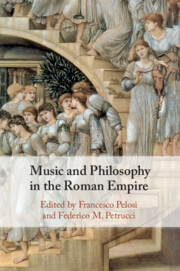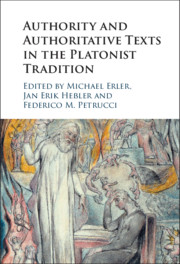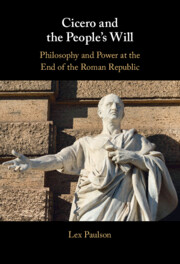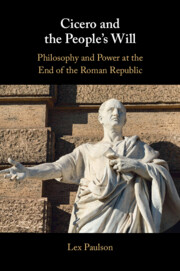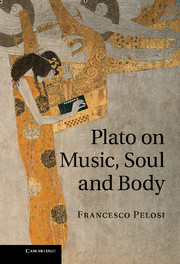Music and Philosophy in the Roman Empire
Is music just matter of hearing and producing notes? And is it of interest just to musicians? By exploring different authors and philosophical trends of the Roman Empire, from Philo of Alexandria to Alexander of Aphrodisias, from the rebirth of Platonism with Plutarch to the last Neoplatonists, this book sheds light on different ways in which music and musical notions were made a crucial part of philosophical discourse. Far from being mere metaphors, notions such as harmony, concord and attunement became key philosophical tools in order to better grasp and conceptualise fundamental notions in philosophical debates from cosmology to ethics and from epistemology to theology. The volume is written by a distinguished international team of contributors.
- Offers a fresh understanding of post-Hellenistic and late antique philosophy through a thorough analysis of the numerous philosophical uses of musical notions in the works from this period
- Adopts both a diachronic and a thematic approach
- Accessible to readers with little or no Greek
Reviews & endorsements
'the collection is welcome and will serve as an excellent entry point to important thought about music linked directly to the antique roots of modern philosophy. Because there are no musical examples and the references to classical languages are translated into idiomatic English, laypersons - even those unfamiliar with the classical period - should not meet obstacles or have accessibility problems. Readers, whether in classics or in music, will find these essays invaluable for making inroads into a period long overlooked in music history. Highly recommended.' M. Dineen, Choice Connect
'This is a wonderful collection of papers, which shows how significant the model of music was in late antiquity for understanding a number of philosophical issues.' George Karamanolis, Greek and Roman Musical Studies
Product details
March 2022Paperback
9781108940955
367 pages
228 × 152 × 20 mm
0.52kg
Available
Table of Contents
- Introduction Francesco Pelosi and Federico Maria Petrucci
- 1. Scala nature and music: two models in Philo's thought Carlos Lévy
- 2. Music and Plutarch's Platonic cosmos Bram Demulder
- 3. The harmoniser god: harmony as a cosmological model in middle Platonist theology Federico M. Petrucci
- 4. Alexander of Aphrodisias and musical models for ontological enquiries Laura M. Castelli
- 5. How to resist musical dogmatism: the aim and methods of Pyrrhonian inquiry in Sextus Empiricus' 'Against the Musicologists' (Math. VI) Máté Veres
- 6. Shifting epistemological perspectives in Ptolemy's 'Harmonics': from the science of sound to the study of music Andrew Barker
- 7. Musical imagery in Clement of Alexandria and Origen: the Greek musical world revised and accepted Francesco Pelosi
- 8. Plotinus on music, rhythm, and harmony Alexandra Michalewski
- 9. Porphyry's 'Commentary on Ptolemy's Harmonics': questions of philosophic and scientific identity Harold Tarrant
- 10. The music of the virtues in late ancient Platonism Dominic O'Meara
- 11. Harmonics as theological paradigm in Proclus Stephen Gersh
- 12. Calcidius on cosmic harmony Christina Hoenig
- 13. Harmonia in Philoponus' 'Commentary on Nicomachus' introduction to arithmetic' Giovanna R. Giardina.

